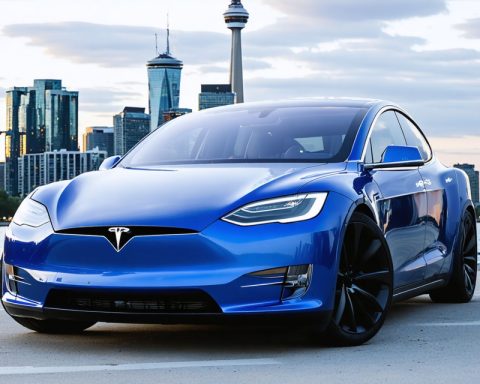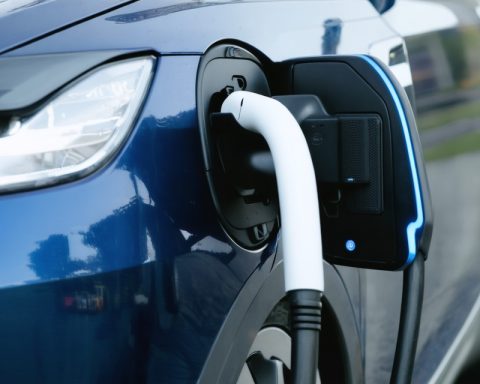- Solid-state batteries are poised to transform electric vehicles (EVs) by offering faster charging times, enhanced safety, and significantly longer driving ranges.
- These batteries use solid electrolytes instead of liquid, reducing risks such as leakage and flammability, while providing a more efficient and compact energy storage solution.
- Major automakers and startups, including Toyota, BMW, and QuantumScape, are heavily investing in the development of solid-state technology.
- The increased energy density of solid-state batteries promises to mitigate ‘range anxiety’ and contribute to lighter, more efficient EVs.
- Adopting solid-state technology could reduce the carbon footprint of battery production and advance sustainable transportation goals.
- Ongoing challenges include reducing production costs and extending battery life, but the pace of progress indicates a rapidly approaching reality.
- Solid-state batteries have the potential to usher in a new era of eco-friendly travel, redefining transportation and impacting the way we live.
Electric vehicles (EVs) have surged onto the global stage, promising cleaner air and a more sustainable future. But one technology stands on the precipice of redefining everything we know about EVs: solid-state batteries. Imagine an electric car that could charge in minutes, offer unparalleled safety, and travel double or even triple the distance without needing a recharge. This is the captivating promise of solid-state innovation.
Revolutionizing the Core
At the heart of every electric vehicle lies its battery, much like the heart powers a human body. Today’s EVs commonly use lithium-ion batteries, which, while effective, have notable limitations. They rely on liquid electrolytes, which can pose risks of leakage and flammability. Enter solid-state batteries, which replace these liquid electrolytes with a solid form, offering the potential for more compact, powerful, and safe energy storage.
Private roads lead to public adoption
The industry buzzes with anticipation as major automakers and startups alike race to refine solid-state battery technology. Some of the world’s most innovative companies—like Toyota, BMW, and QuantumScape—are investing heavily in research and development to bring these batteries from lab to road. Picture a future where an EV can travel from Los Angeles to San Francisco on a single charge. This isn’t just science fiction, but an achievable milestone.
Efficiency Meets Safety
Solid-state batteries promise remarkable improvements in energy density, meaning they can store more power in a smaller space. This would not only extend the driving range of EVs—potentially alleviating the so-called ‘range anxiety’—but also reduce the weight of the battery, allowing cars to be more energy-efficient. Moreover, the solid electrolytes pose far fewer safety risks compared to their liquid counterparts, reducing the chances of battery fires and boosting overall vehicle safety.
The Green Shift
Wider adoption of solid-state technology could also prove to be a crucial step in reducing our carbon footprint. As manufacturing scales, the production of these batteries could become more environmentally friendly than current lithium-ion processes, thus supporting the broader mission of sustainability in transportation.
A Step Closer to Reality
While challenges remain—such as lowering production costs and extending battery life—progress continues at a rapid pace. Gleaming in the distance is the dream of electric vehicles that charge in the wink of an eye and safely store energy for longer journeys.
A Shift in Driving Dynamics
As we stand on the brink of this electrifying future, one takeaway shines brightly: the advent of solid-state batteries could redefine transportation, ushering in a new era of efficiency and eco-friendly travel. For drivers poised to embrace innovation, solid-state batteries might be the key that unlocks the full potential of electric vehicles, revolutionizing how we move and ultimately, how we live.
In this swiftly shifting landscape, staying informed is crucial. With solid-state batteries on the horizon, we’re not just witnessing an evolution; we’re entering a revolution that could change the way the world moves.
This Breakthrough Battery Technology Could Revolutionize Electric Cars
Electric vehicles (EVs) are rapidly gaining popularity, heralding a shift toward cleaner air and a more sustainable future, but a transformative technology stands ready to redefine EVs as we know them: solid-state batteries. Imagine an electric car that charges in minutes, provides unparalleled safety, and travels double or triple the distance without needing a recharge. This is the compelling promise of solid-state innovation.
What Are Solid-State Batteries?
Solid-state batteries use a solid electrolyte instead of the liquid or gel that traditional lithium-ion batteries use. This change in material brings several advantages, including increased energy density, greater safety from fires or leaks, and potentially faster charging times.
Solid-State Battery Technology: How Does It Work?
1. Collection of Materials: Solid-state batteries utilize solid electrolytes—materials through which ions move during charge and discharge cycles. Common materials used include sulfides, oxides, and phosphates.
2. Assembly Process: The production of solid-state batteries requires precise layering techniques, where each component, such as the anode, cathode, and solid electrolyte, is layered to form a complete cell.
3. Thermal Management: Compared to their liquid counterparts, solid electrolytes can operate safely at higher temperatures, minimizing the need for elaborate cooling systems that add bulk and weight.
Real-World Use Cases
1. Automotive Industry: Companies like Toyota, BMW, and QuantumScape are deeply invested in adopting solid-state batteries. The potential to extend EV range significantly and reduce charging times makes a strong case for these batteries in the automotive sector.
2. Consumer Electronics: The consumer electronics industry also stands to benefit, as solid-state batteries could lead to smartphones, laptops, and wearable devices that last longer and are less prone to overheating.
3. Renewable Energy Storage: Solid-state technology could greatly enhance renewable energy storage, offering safer and more efficient ways to store solar and wind energy for consistent use.
Market Trends & Forecasts
The solid-state battery market is projected to grow rapidly over the next decade. According to [IDTechEx](https://idtechex.com), solid-state battery revenues could reach $6 billion by 2030, driven by the automotive and consumer electronics industries’ adoption.
Pros and Cons Overview
– Pros: Higher energy density, improved safety, fast charging times, longer lifespan, compact size.
– Cons: Current high manufacturing costs, technical challenges in scaling production, the need for further development of suitable solid electrolyte materials.
Controversies & Limitations
Despite the promising aspects, the technology has hurdles. High costs and manufacturing difficulties are primary concerns. Current solid-state prototypes can be expensive, with many technical challenges still to be addressed before mass production can become a reality.
Key Insights & Predictions
Experts predict that within the next 5-10 years, we could see the commercial adoption of solid-state batteries. As technological advancements lower production costs and improve longevity, these batteries could become a mainstay in EV manufacturing.
Actionable Tips for Consumers
– Stay Informed: Keep track of developments from leading automotive companies investing in solid-state technology.
– Future-Proofing: If you’re in the market for an EV, consider models that might support an upgrade to solid-state batteries in the future.
– Investment Perspective: Investors looking at EV or battery technology stocks should consider companies with significant R&D in solid-state batteries.
Quick Tips
– Range Anxiety Solutions: For those worried about current EV ranges, pay attention to early models that adopt solid-state technology, as they promise much longer ranges.
– Safety Assurance: If vehicle safety is a top priority, solid-state batteries will likely enhance vehicle resilience against fire and thermal conditions.
For more insights on innovations and trends in technology, visit [TechCrunch](https://techcrunch.com) or [The Verge](https://theverge.com).
By keeping all these aspects in mind, you can be better prepared for the electrifying future of solid-state battery technology, promising to truly revolutionize the way we think about electric vehicles and beyond.















